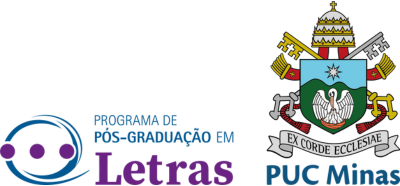The Origin of Ideas: blending, creativity, and the human spark
Palavras-chave:
Resenha, Mark Turner, The origin of ideas.Downloads
Referências
FAUCONNIER, Gilles. Mental spaces: Aspects of meaning construction in natural language. Cambridge, MA: MIT Press, 1985.
FAUCONNIER, Gilles. Mappings in thought and language. Cambridge, UK: Cambridge University Press, 1997.
FAUCONNIER, Gilles; TURNER, Mark. Conceptual integration networks. Cognitive science, v. 22, n. 2, p. 133-187, 1998.
FAUCONNIER, Gilles; TURNER, Mark. The way we think: Conceptual
blending and the mind’s hidden complexity. New York: Basic Books, 2002.
GABORA, Liane. Contextual focus: A cognitive explanation for the cultural transition of the Middle/Upper Paleolithic. In: ANNUAL MEETING OF THE COGNITIVE SCIENCE SOCIETY, 25., 2003, Boston. Proceedings... Hillsdale, NJ: Lawrence Erlbaum, 2003.
GENTNER, Dedre. Structure-mapping: A theoretical framework for
analogy. Cognitive science, v. 7, p. 155-170, 1983.
GICK, Mary L.; HOLYOAK, Keith J. Schema induction and analogy
transfer. Cognitive Psychology, v. 15, p. 1-38, 1983.
HOFSTADTER, Douglas; GABORA, Liane. Synopsis of a workshop on
humor and cognition. Humor, v. 2, n. 4, p. 417-440, 1989.
LAKOFF, George; JOHNSON, Mark. Metaphors we live by. Chicago, IL.: University of Chicago Press, 1980.
LAKOFF, George; TURNER, Mark. More than cool reason: A field guide to poetic metaphor. Chicago, IL: University of Chicago Press, 1989.
TURNER, Mark; FAUCONNIER, Gilles. Conceptual integration and formal expression. Metaphor and symbolic activity, v. 10, p. 183-204, 1995.
TURNER, Mark. The literary mind: The origins of language and thought. New York: Oxford University Press, 1996.
Downloads
Publicado
Como Citar
Edição
Seção
Licença
O envio de qualquer colaboração implica, automaticamente, a cessão integral dos direitos autorais à PUC Minas. Solicita-se aos autores assegurarem:
- a inexistência de conflito de interesses (relações entre autores, empresas/instituições ou indivíduos com interesse no tema abordado pelo artigo), e
- órgãos ou instituições financiadoras da pesquisa que deu origem ao artigo.
- todos os trabalhos submetidos estarão automaticamente inscritos sob uma licença creative commons do tipo "by-nc-nd/4.0".


 Português
Português English
English Español
Español
 Italiano
Italiano






